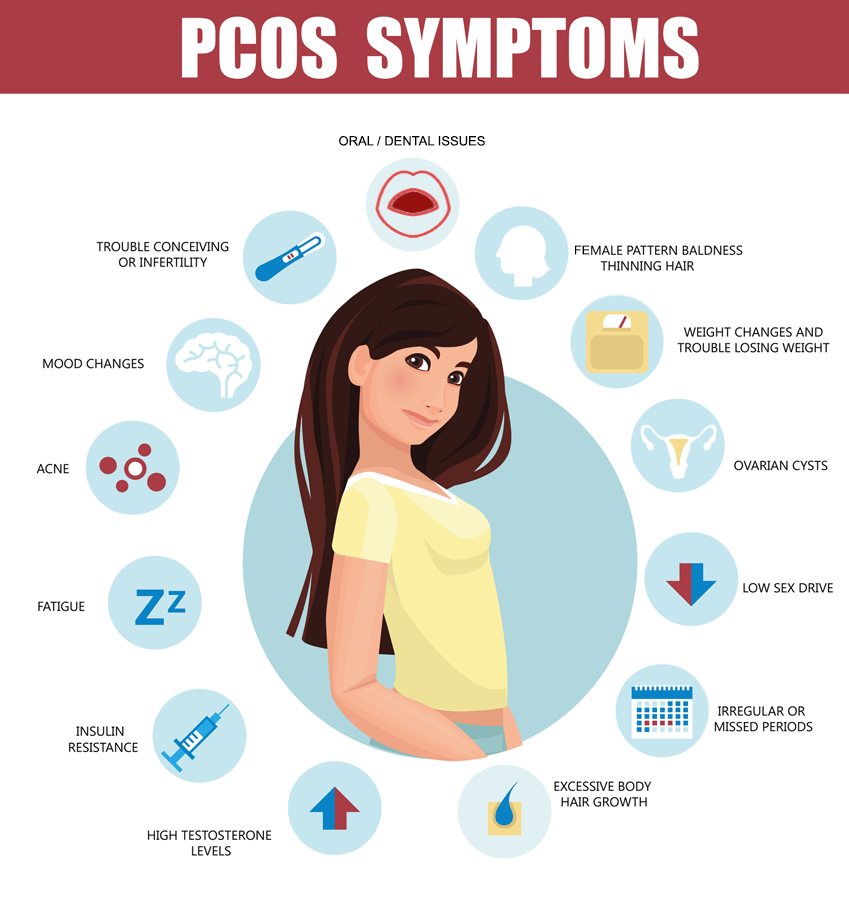I didn’t know what was wrong. Overnight, I went from being healthy, vivacious and attractive, to being fatigued, fat and acne-riddled.
My menstrual cycles were long, sometimes non-existent, for three or more months, and I was growing more chin hair than my husband was.
We were trying desperately to have a child of our own, but after eight miscarriages, it was starting to seem hopeless. Then I happened to read an article in a women’s magazine about this relatively unknown condition called Polycystic Ovarian Syndrome, or PCOS. The more I read about this, the more I became convinced that this was the key to my suffering.
I took the article to our fertility specialist, who ran some additional tests. I left with a diagnosis and a treatment plan, relieved to have an answer at last.
PCOS, also known as Stein-Leventhal Syndrome, is a “silent” condition that affects up to 10% of the female population. No one knows exactly what causes it, though it is suspected that it is a genetically inherited disorder.
Symptoms may vary.
PCOS is characterized by various markers that may or may not occur, sometimes without even realizing it. These include…
In the past, dental consequences of this condition were typically ignored. We now know, PCOS may affect the composition of the oral microflora as well as periodontal and dental health with various mechanisms.
Getting the help you need

When you suspect PCOS, make an appointment to see your physician immediately. They’ll take your medical history, check your hormone and insulin levels, and possibly perform an ultrasound and pelvic exam to determine if you have cystic ovaries.
If the diagnosis is positive for PCOS, your doctor may prescribe Glucophage (as in my case) or another type of medication, possibly hormone therapy or birth control pills.
If your condition is not serious enough to warrant use of prescription medications, your doctor may encourage you to change your diet. If this is the case, a consultation with a nutritionist familiar with PCOS would be prudent. Depending on severity, your diet and lifestyle may be in for a complete overhaul.
Since insulin resistance, which can lead to Type-2 diabetes, is a major PCOS symptom and contributing factor to obesity, a nutritionist may recommend a diet low in carbohydrates.
The Atkins diet is the most popular of the low-carb diets, but making simple substitutions and moderating your intake of refined sugars can also go a long way towards controlling your condition and help you lose weight.
Increase your consumption of whole grains, fruits, vegetables and high-protein foods; foods high in protein, like fish and eggs, help maintain insulin levels.
If a low-carb, Atkins-style diet is not your cup of tea, a low-glycemic index diet (Low GI) is a useful alternative that will also help control blood sugar and insulin levels. With the number of low-carb and low-GI products available in your local grocery store these days, you do not have to “suffer” in order to adopt this sort of lifestyle.
The Zone is another popular diet plan that many PCOS-sufferers swear by. The bottom line is that any diet program that calls for eating foods rich in nutrients and low in processed sugars and chemicals will greatly increase your ability to moderate the effect of PCOS on your life.
Exercise is also important. Even moderate activity – walking, yoga, Pilates – is beneficial. Not only will you burn calories and tone muscle, the endorphins released through exercise can give you an overall feeling of wellness. Since most women with PCOS suffer hormonal imbalances which may contribute to mood swings and depression, exercise can help mitigate the negative feelings.
If you are adverse to exercise, Curves offers a wonderful, low-impact workout that alternates muscle strengthening and aerobic activity in a friendly, low-key environment. Or take a dance class or ice-skating instruction – just get moving – you’ll probably want to do more and more!
PCOS is a serious condition that requires medical attention and careful adherence to a healthy lifestyle to control it.
The bottom line about PCOS
PCOS may very well be the reason you have so much trouble losing weight or conceiving, among other things. Nevertheless, there’s no excuse to seek treatment and get a grip on your lifestyle! You just have to decide whether you want to let PCOS control you, or the other way round.
Contributed by: LM Tayler


